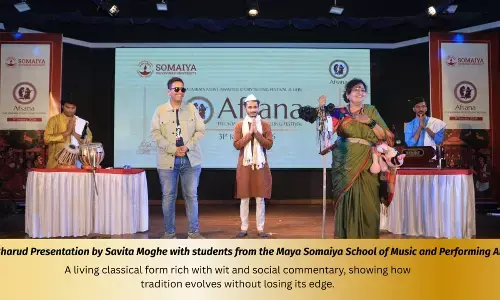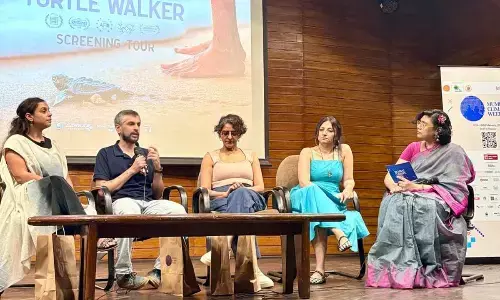How coding, robotics, AI foster innovative learning

We already know that every generation is smarter than the ones that comes before them.
We already know that every generation is smarter than the ones that comes before them. There’s research that pegs this intellectual growth at 9 IQ points – on average, every generation is 9 points smarter than the preceding one. The Flynn Effect explains this quite succinctly. Given that every subsequent generation has better access to better nutrition, healthcare, educational opportunities, money, and technology than the previous one, it is natural that they be ‘smarter’ as well.
So it’s only natural that these smart kids – full of curiosity about the world and everything in it – want to have more control over what they spend their time learning.
Disciplines such as coding, robotics, and AI nurture this curiosity by not just giving them answers, but helping them unravel them. And in this process of discovering answers, kids are able to dream up even more innovative questions. It’s a creative loop that most kids, with their innate sense of wonder towards the world, find irresistible. I often come across parents who want to enroll their kids for coding or robotics because they want to give their kids an edge over other kids. While yes, learning any next-gen skill can give learners an advantage, these skills aren’t about making kids future-safe, but about making them ready to embrace the challenges of the future.
When I ask kids the same question: why do you want to learn coding or robotics or AI, I get a starkly different response that their parents.
Kids want to learn these skills because it empowers them, while they are having fun. Most of us have grown up in a world rife with expensive gatekeeping. The journey from learner to creator was long and had many barriers to entry. Thanks to low-cost hardware and cheap data, most kids today have at least partial access to internet-powered devices. According to the Bharat
Social media might be a double-edged sword, but it is also daily and constant proof that if you have a great idea and the tenacity to see it through, absolutely anything can be achieved – economic, cultural, age, gender, caste, religious, or any other restrictions notwithstanding.
The result of all of these dynamic changes is that today’s children grow up expecting to see their learning in action in real time, instead of being satisfied with just theoretical knowledge about the subjects that interest them.
The disciplines of robotics, coding, and AI are particularly well-suited to cater to this need for experiential learning. As kids code their own apps and web products to solve the problems they are most passionate about, they start thinking more deeply about the nuances of their solutioning. When they learn about circuits and sensory systems, the Internet of Things, and marrying AI/ML technology into robots, they start thinking about the ethical questions surround automation and the future of work.
As they work with GenAI tools and their understanding of how AI tools are trained to become more accurate and powerful, they are confronted with questions of copyrights, laws, universal rights and wrongs, and the chasm between those who have access to these technologies and what it might mean for those who don’t.
And because this process of learning forges neural pathways that traditional learning protocols simply cannot, which further helps them experience the world and participate in it in unexpected and unusual ways.
Remember that iconic scene in The Matrix, when Neo finally starts seeing the lines of code that make up the world around him and due to this act of observation he is able to alter them to protect the world? Learning coding, robotics, and AI is doing something similar to kids – once they understand how technology is built and its interaction with the world, a whole universe of change and improvement opens up for them!
(The author is Founder & CEO, BrightCHAMPS)









